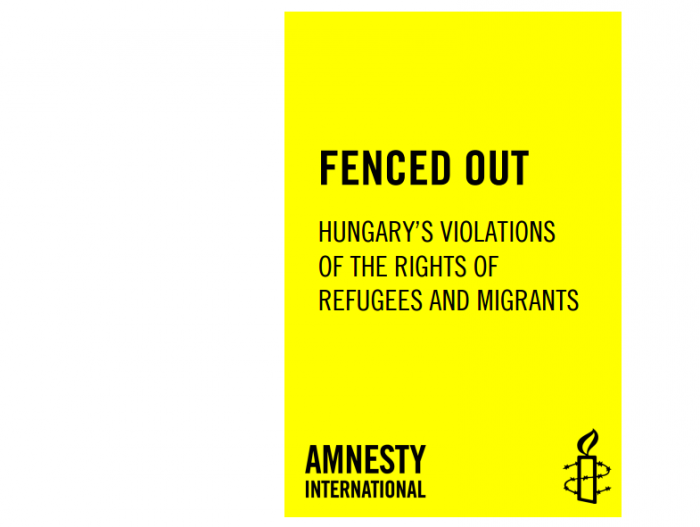AI: Hungary’s treatment of refugees violates international law

The Hungarian government has invested more than €100 mln – triple the amount the state spends yearly on receiving asylum seekers – on measures to keep refugees and migrants out of the country, including razor-wire fencing and extra border controls, Amnesty International (AI) says in a report published yesterday entitled “Fenced Out”.
According to AI, Hungary’s “draconian measures” to control the country’s borders “have repeatedly violated international law”. Amnesty International has called on the European Union to hold Hungary to account for “its human rights failures and to protect people on the move by creating safer, legal routes before winter hits,” the report adds.
“Hungary is a few razor-wire coils away from completely sealing off its borders with Croatia and Serbia. Even those that do manage to squeeze through the key-hole are almost certain to be returned to Balkan countries of transit,” said John Dalhuisen, Amnesty International Director for Europe and Central Asia. “Hungary is effectively transforming itself into a refugee protection free zone, with blatant disregard for its human rights obligations and the obvious need to work with other EU and Balkan countries to find collective, humane solutions to the current crisis,” the director added.
According to the Amnesty International report, the “combination of building razor-wire fences and criminalizing those who do break through and enter the country irregularly, as well as the rush to return them to Balkan transit countries, is designed to isolate Hungary from the global and European refugee crisis,” and the measures come at “the wholesale expense of the respect for human rights,” the report says.
“The EU has the power to trigger formal discussions with Hungary over its appalling treatment of refugees and migrants and send a clear message that ‘enough is enough’ to those states that disregard EU and international law. The EU should do this before it is too late,” said Iverna McGowan, Acting Director of Amnesty International’s European Institutions Office. “Scrutiny of the human rights situation in Hungary has repeatedly fallen through the cracks, with member states and institutions endlessly passing the buck on who is ultimately responsible for upholding human rights in the EU. This gap must be urgently bridged with a stronger response to human rights violations by EU member States and institutions alike,” McGowan added.
The full report is available here.
SUPPORT THE BUDAPEST BUSINESS JOURNAL
Producing journalism that is worthy of the name is a costly business. For 27 years, the publishers, editors and reporters of the Budapest Business Journal have striven to bring you business news that works, information that you can trust, that is factual, accurate and presented without fear or favor.
Newspaper organizations across the globe have struggled to find a business model that allows them to continue to excel, without compromising their ability to perform. Most recently, some have experimented with the idea of involving their most important stakeholders, their readers.
We would like to offer that same opportunity to our readers. We would like to invite you to help us deliver the quality business journalism you require. Hit our Support the BBJ button and you can choose the how much and how often you send us your contributions.







